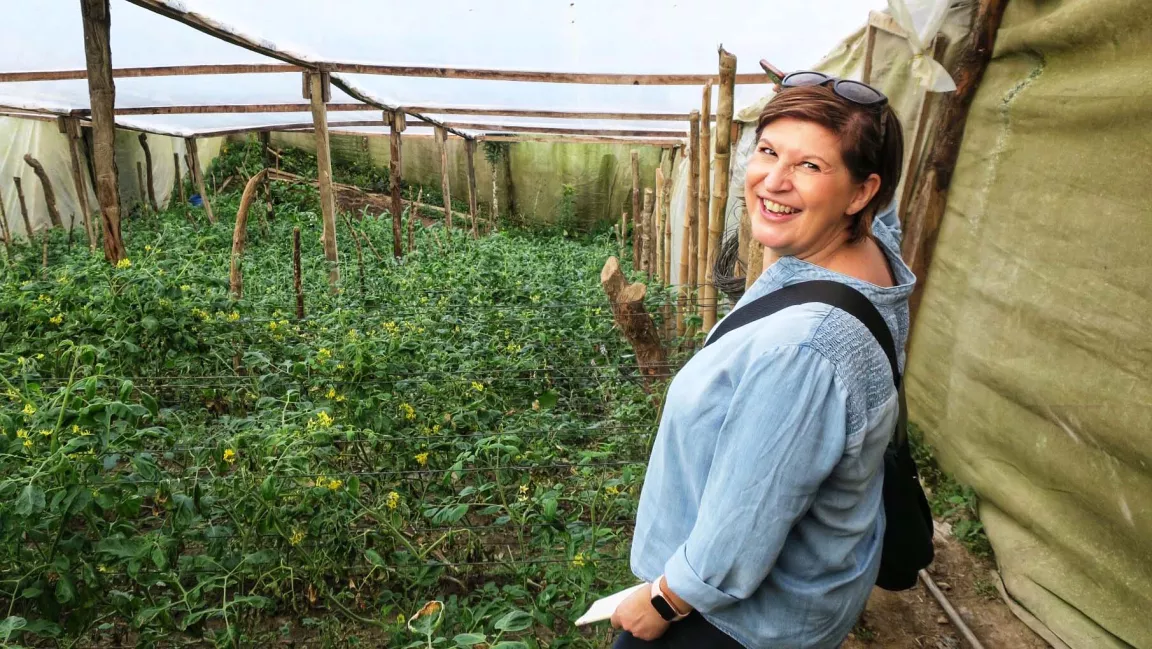Field Trip Introduces Participants to Life After Genocide in Guatemala
Dr. Catherine Nolin has spent more than 20 years doing migration research in Guatemala. In mid-January, she co-organized a field trip in the Maya-Achí region of Baja Verapaz that focused on Indigenous initiatives that are helping Achí culture and society recuperate.

Educating participants to life after genocide in the Maya-Achí region of Baja Verapaz in Guatemala was the focus of a field trip in mid-January organized by Dr. Catherine Nolin and Grahame Russell from the University of Northern British Columbia’s Geography Program.
“The specific focus was on local Indigenous initiatives that aim to recuperate Achí culture and society (after surviving genocide in the 1980s) through popular education and sustainable/traditional agriculture,” explained Dr. Nolin.
The three-day field trip involved 13 geography professors and graduate students who attended the 50th Anniversary meeting of the Conference of Latin America Geography (CLAG) -- the premier scholarly organization for geographers engaged in research in Latin America.
The field trip was so successful that they are running another eight-day trip in mid-May for CLAG members titled: No End in Sight: Root Causes of Migration from Honduras and Guatemala.
Dr. Nolin is the vice-chair of CLAG. She organized a panel to reflect on her 20-plus years of migration research in Guatemala and delivered the conference’s keynote lecture titled: Documenting Violence in Guatemala: Insurgent Geographical Research for Change.
She and Russell of Rights Action (and UNBC Geography adjunct faculty member) organized the post-conference field trip, along with Nathan Einbinder, UNBC MA NRES-Geography 2010.